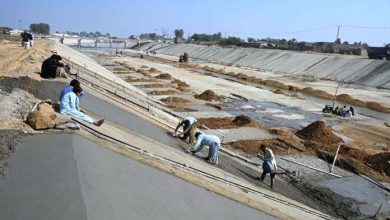Women leaders are the key to sustainable climate solutions
Source: EURACTIV Media network, Date: 1 Dec, 2022
Women’s leadership has been shown to result in greater responsiveness to citizens’ needs, as well as increased cooperation in delivering sustainable peace and improved outcomes of climate-related projects and policies, writes Ebru Özdemir.
As COP27 has ended, it seems that the world missed yet another opportunity to take decisive actions in tackling climate change. This year, in Egypt, countries reached a consensus on financing the “loss and damage” fund for vulnerable countries but failed to progress on mitigation, adaptation, and international collaboration towards a more ambitious agreement than in Glasgow last year.
At the same time, the summit witnessed protests in Sharm El-Sheik and all around the world with activists demanding climate justice. In efforts to save the planet from climate change, the term climate justice has become frequently used.
The activists argue the climate crisis is a justice issue because 1) the causes of climate change are based on social inequalities that are driving overconsumption, 2) the impacts of climate change are not felt equally, and 3) the policies designed to manage climate change will have unequal consequences. It’s an argument I sympathise with, and as we look forward to COP28, we must ensure that climate justice is achieved effectively.
A recent report from the Environmental Justice Foundation (EJF, 2022) supported the assertion that the climate crisis boosts inequalities. People in both developed and developing countries are disproportionately affected by climate change, as climate-related policies come short of addressing the differing vulnerabilities.
We saw first-hand how global disasters like the COVID-19 pandemic exacerbated pre-existing inequalities in education, the labour market, living standards, mental health, and wealth worldwide.
Failing to act on climate change will impact the poorest in society and even push back recent economic growth that has helped people out of poverty. The World Bank report (2020) estimated that an additional 68 to 135 million people could be pushed into poverty by 2030 due to the climate crisis. Therefore, tackling climate change is necessary to mitigate against changes to global temperatures and protect living standards around the world.
Climate change is known to impact people in different ways, aggravating existing inequalities, and it is women who are affected the most. Climate change is a ‘threat multiplier.
UN Women have posited that these gendered effects are caused by numerous factors such as women depending more on, but having less access to, natural resources; women being primarily responsible for securing food, water, and fuel; girls often having to leave school to support women in agricultural work; women being less likely to survive natural disasters; women having less access to relief, and climate change directly affecting the physical health of pregnant women.
While pursuing sustainable development goals, decisive climate action and an inclusive future, we must place climate justice for women at the core of our discussions. A BBC analysis of the COP27 participant list concluded that women make up less than 34% of country negotiating teams, with some teams comprising more than 90% male.
This is simply not good enough. Women must be included in climate change leadership, policymaking, financing and implementation as we consider the gendered nature of the impact of climate change. A climate solution that is inefficient for women is not a climate solution.
In March 2022, during the 66th session of the United Nations Commission on the Status of Women (CSW66), member states acknowledged the crucial role of women and girls as agents of change for sustainable development and urged stakeholders to expand gender-responsive finance.
This emphasised the necessity of empowering women and enabling them to secure climate change decision-making and leadership positions to drive effective and sustainable climate action. This should come as no surprise as evidence shows that not only women make more effective climate leaders, but achieving gender equality can be an accelerator in attaining all the other 16 Sustainable Development Goals.
Whilst representative leadership is more effective, and women’s leadership on climate change has been proven to have a more significant impact, women do not currently play an equal part in the decision-making processes and labour markets, which ultimately prevents their participation in climate planning, policymaking, and implementation. Yet, women’s leadership has resulted in greater responsiveness to citizens’ needs, increased cooperation in delivering sustainable peace, and improved outcomes of climate-related projects and policies.
Many women also spearhead engineering and technological initiatives to develop innovative solutions to a sustainable energy transition.
To effectively mitigate the climate crisis, we must unleash women’s potential by fostering their skills, resilience and knowledge. For a sustainable future, we need a vision that leaves no one behind.







